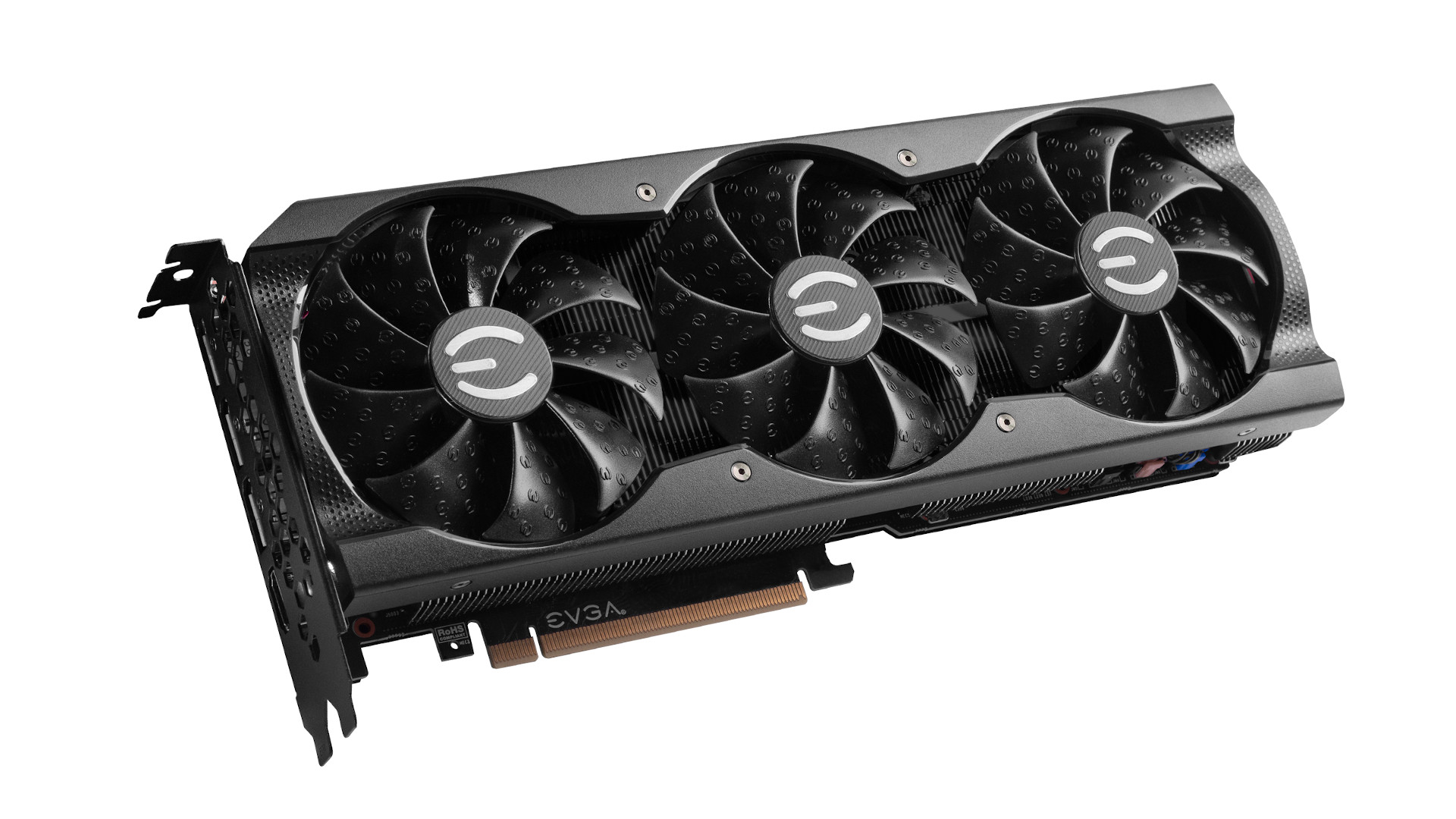Nvidia RTX 3080 Ti GPUs may be even harder to buy after firmware fix helps miners
EVGA 3080 Ti XC3 fix could be applied to cards from other vendors in theory

EVGA recently pushed out new firmware for its RTX 3080 Ti XC3 graphics card – an update that can potentially be applied to other 3080 Ti models from different card makers, albeit riskily – which resolves a performance issue, but in doing so, also gives crypto-miners a boost.
As you may be aware, the RTX 3080 Ti comes with light hash rate (LHR) countermeasures to hamper mining performance and make the GPUs less suitable for miners, but the EVGA update is a way to boost speeds, therefore making the cards more attractive to a mining audience (plus remember there have already been hacks to partially get around LHR restrictions).
Tom’s Hardware spotted that this was highlighted by Reddit user @bravo_char, who applied the firmware update and claims that they went from an Ethereum hash rate of around 66 MH/s to about 80 MH/s, a pretty chunky mining performance boost.
As one poster replying put it: “I’ve been mulling over buying one of these [RTX 3080 Ti], their price is attractive, but was hesitant due to the LHR limit, it’s really encouraging seeing new unlocks coming out for these cards.”
It is, of course, not so great news for gamers who are already struggling to find and purchase a high-end Nvidia GPU, with EVGA’s 3080 Ti (and possibly other models) now more likely to be picked up by miners.
Analysis: Artificial power cap issue needed to be fixed
The original issue here was first pointed out on the EVGA forums back in June 2021, with 3080 Ti XC3 owners observing that there was “some kind of hidden power cap” artificially limiting the amount of juice the GPU got, and therefore performance. The above miner on Reddit made the same observation, namely that the “factory VBIOS has a hidden power limit”, meaning the card will downclock and lower its speed during tasks where there’s a high memory load.
That means crypto-mining, but equally workloads such as 3D rendering or other heavyweight computing tasks. So really EVGA has cured a general performance problem here – something that needed to be done, clearly – but it also happens to benefit miners who own the board, too.
Get daily insight, inspiration and deals in your inbox
Sign up for breaking news, reviews, opinion, top tech deals, and more.
The other twist to this little GPU tale is that while EVGA owners can apply the fix to cure the issue via a firmware update (using EVGA X1 Precision software), it is theoretically possible to flash the EVGA XC3 BIOS to another manufacturer’s 3080 Ti. In fact, as PC Gamer points out, Red Panda Mining did exactly this with an Inno3D 3080 Ti iChill X3, upping performance to 91 MH/s.
That said, messing with the BIOS like this in a 3080 Ti from another manufacturer is pretty dangerous territory, and anyone who isn’t seriously clued-up on what they’re doing is probably more likely to end up with a bricked GPU than a more performant card.
Whether or not other card makers release their own official BIOS updates for 3080 Ti models, we’ll just have to see. But as this problem has just become a lot more visible, they may feel the pressure to do just that – and while Nvidia may not like the increased mining performance that results, it’ll be tricky to push against such moves, given that they affect other users, as mentioned, and not just crypto-miners.
However, the overall upshot remains some potential added pressure on demand for the 3080 Ti from the mining community, which is really not the news we need considering how tricky an issue availability already is.
Darren is a freelancer writing news and features for TechRadar (and occasionally T3) across a broad range of computing topics including CPUs, GPUs, various other hardware, VPNs, antivirus and more. He has written about tech for the best part of three decades, and writes books in his spare time (his debut novel - 'I Know What You Did Last Supper' - was published by Hachette UK in 2013).